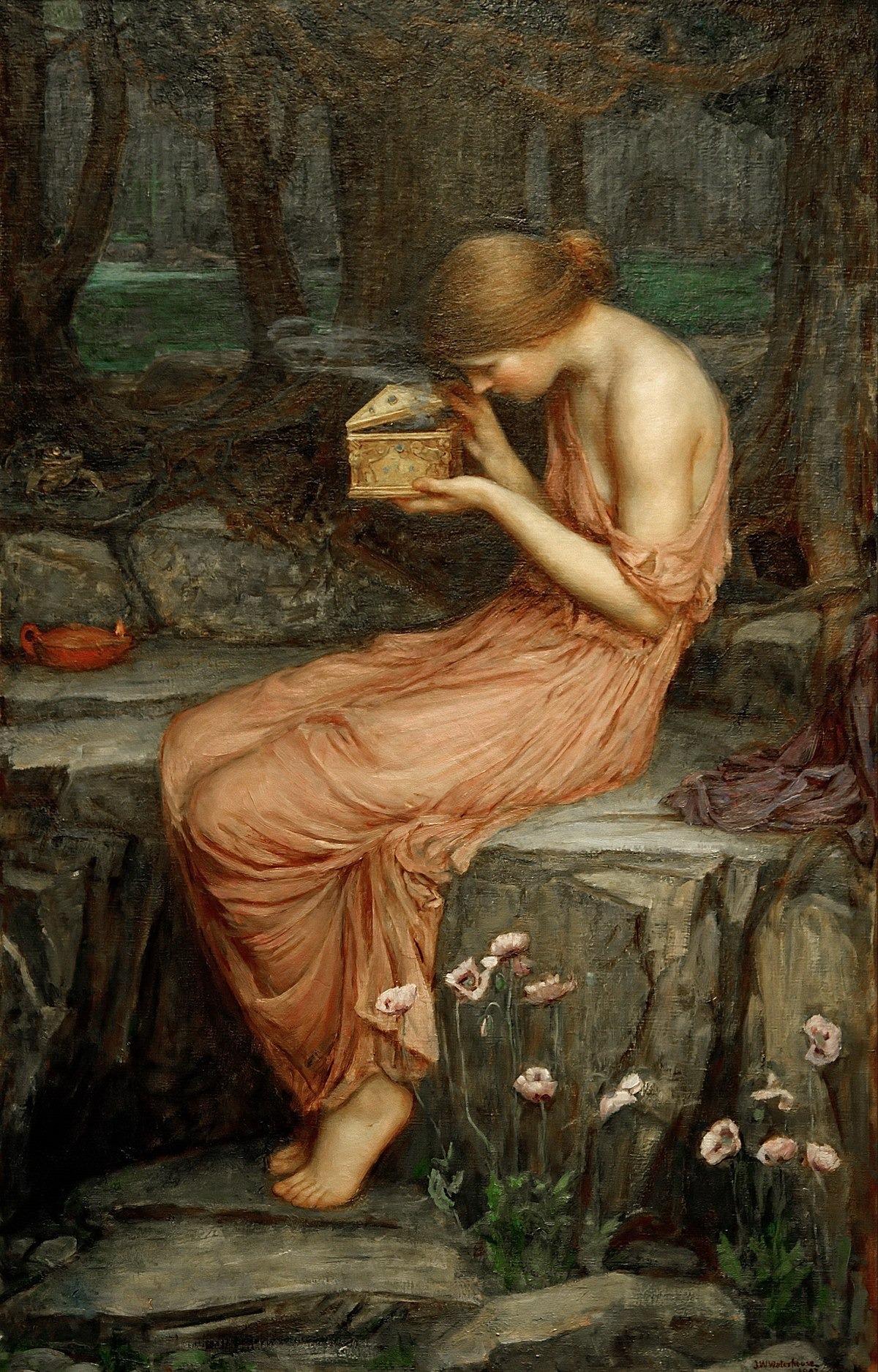
Psyche: The Four Tasks Seductresses Need to Complete to Heal
The good wife with the white picket fence and the goddess of sex with the black negligee are not mutually exclusive. You can understand, accept, and freely express your Aphrodisian nature and emotions.
The Greek gods and goddesses accurately represent the various archetypes of people today. We have Athena, the bookish warrior; Hera, the serving mother and wife; or Ares, the god of war and fire. We are focusing on the archetype of Aphrodite – the goddess of love, beauty, sex, and seduction.
These women are often portrayed as seductresses - they are the femme fatale, the vixen, or the siren. She wears the scarlet letter. You rarely see her as the protagonist nor have an arc of growth.
Unfortunately, I find the psychology and narrative world rarely provides healing journeys for women of these stripes. Instead, they are told to suppress their true nature to live a happy life.
However, there is one story where an Aphrodisian woman undergoes that healing journey. She integrates all aspects of who she is and wants to be. This epic is the 2000-year-old myth of Psyche.
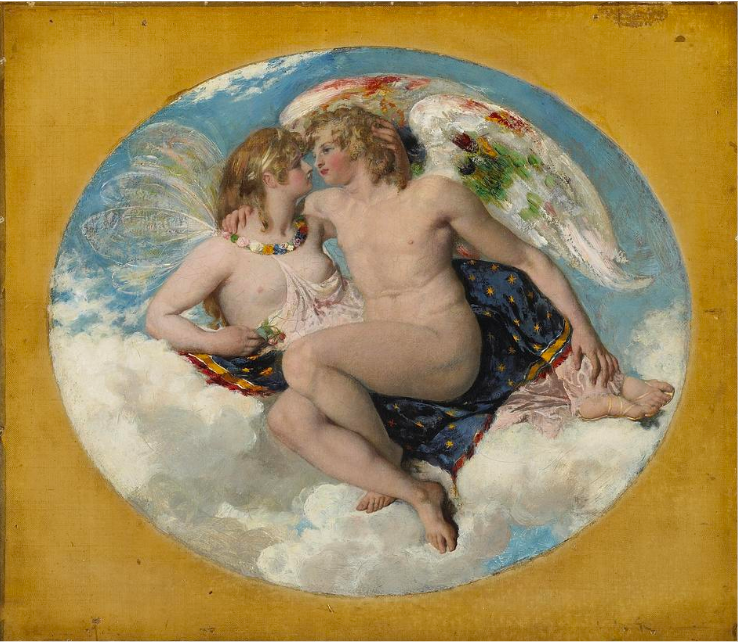
Psyche faces problems many contemporary seductresses struggle with, particularly, unhealthy relationships where she is not treated as an equal.
Let's pick up at the moment Psyche faces her greatest rival, Aphrodite herself. Aphrodite has been targeting Psyche from day one.
To reiterate, Aphrodite represents our inner ego and self-critic who makes our lives hell.
With great trepidation, Psyche goes to the home of Aphrodite. When Psyche arrives at Aphrodite’s home, her head is down, and her tail is between her legs. She is ready to grovel to get her Eros back.
Reminder, Eros is Psyche’s husband, the ultimate alpha man, man-child, and Aphrodite’s son. Psyche is obsessed with getting him back, but she needs to transform herself to find true love.
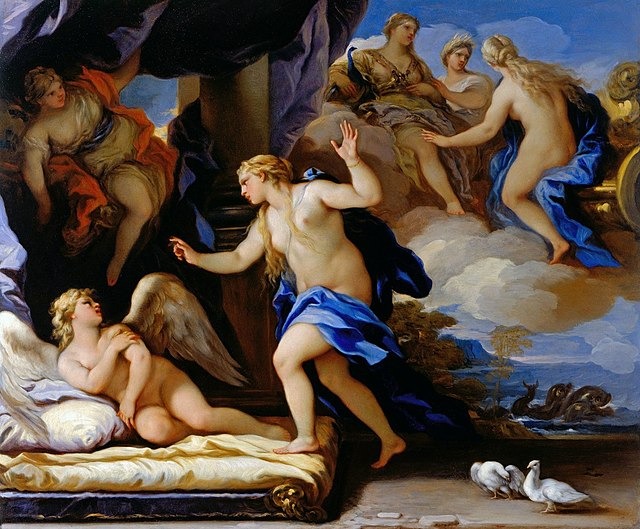
Many women think men have to change for them to get a happy relationship. But the reality is only self-worth and consciousness can get us the intimacy we need.
You might not get the guy you originally wanted, but you’ll get the right guy for you again.
Psyche's journey to self-love begins at Aphrodite’s palace. A servant named Habit appears, viciously grabs Psyche by the hair, and drags her to the throne. Tellingly, habits plague women and draw them back into emotional and physical abuse.
Aphrodite is ruthless. Just think of anyone who has ever had power over you, really controlled you, and then they start to lose control. When they feel it slipping away, they know that they must double their efforts to keep you enslaved. They become even harsher and more draconian in their methods of control and domination. This is the relationship of Aphrodite (the ego) to Psyche (the soul) when Psyche humbly goes to Aphrodite.
With Psyche captured, Aphrodite also calls upon Melancholy and Sorrow, her most skilled torturers, to begin their tactics to drain Psyche of her life force.
In our lives, the attack by these two hand-maidens of the ego is brutal and can last a lifetime. However, the true nature of the torture is often that we are entrapping ourselves. They live within us.
Aphrodite makes fun of the baby in Psyche’s belly and calls her a cheap maidservant. She says that Psyche and Eros are not a couple of equal statuses.
Psyche is mortal, and Eros is a god. Their wedding had taken place without witnesses and a father's consent, so it cannot be pronounced legal. The child will therefore be born a bastard—if we allow you to reach full term with him at all!
If that wasn't brutal enough, Aphrodite flew at Psyche. At this moment, she could have murdered the young woman in cold blood. However, she chose to torture her instead.
Instead of killing Psyche, Aphrodite assigns her four brutal “impossible” tasks. Although it is Aphrodite's intention that her tasks will destroy Psyche, these tasks set both Psyche and today’s women on a path of psychic development; each task makes Psyche stronger.
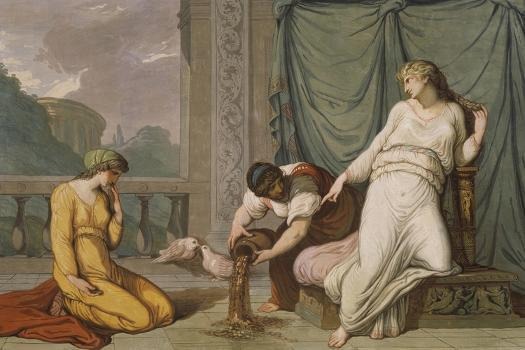
Task One: Sorting the Seeds
Aphrodite brings out an enormous heap of different seeds that are all mixed together/ She demands that Psyche sort them by the evening. This represents sorting our personal seeds - and how women must be highly selective about the quality of people they let into their lives, particularly romantically.
This is an impossible task. However, a group of ants help Psyche complete it. When we rely on our intuition, symbolized by the ants, we can get through challenges and trauma. However, we must decide not to run from life’s tasks and believe that if we trust our gut, we will survive,
All women must be highly selective about the people they let into their lives, particularly romantically. Having “bad taste in men” is not just a quirk; it is a dangerous habit that results in terrible self-esteem. One bad seed/toxic person can contaminate your entire life.
What kinds of people should you avoid? If someone engages in dishonesty or character assassination, they are not your friend. Trust your intuition. If someone gives you an off feeling, listen to it. Most transgressions are behind your back; if it happens in front of you, it’s the tip of the iceberg.
People rarely change without significant work. You can move on without forgiving people who don’t deserve a second chance. If we choose to stay in relationships with less-than-perfect people, we must have firm boundaries around them.
Not everyone deserves your openhearted vulnerability, be careful about to whom you vent your core weaknesses.
Some tips for sorting your personal seeds:
Upon finding Psyche has miraculously sorted the seeds, Aphrodite orders her to complete a new, even more dangerous task - golden some fleece from lethally violent rams. This gold represents material wealth and power. Women need to hold gold of their own.
Rams, with their quick temper and deadly horns, are symbolic of male aggression. One wrong move and Psyche could be butted to death.
Aphrodite pushes Psyche into confronting masculine power, believing it will destroy her. Psyche knows the rams are dangerous; she cannot compete with them because she does not have their physical strength. She is built differently biologically, emotionally, and energetically. She concludes that it is hopeless. Rather than be crushed to death by the fighting rams, she decides to jump off the cliff into the river and drown.
Then a reed in the river talks to Psyche, giving her a game plan: just wait until the ferocious rams take an afternoon siesta. She could walk near them and gather some of their golden fleece from where it had rubbed off on a tree.
Psyche achieves this task by understanding the nature of the rams – and using her own skills to out-maneuver them. In the workplace, women must do the same. Don’t try to play a man’s game; play to your strengths.
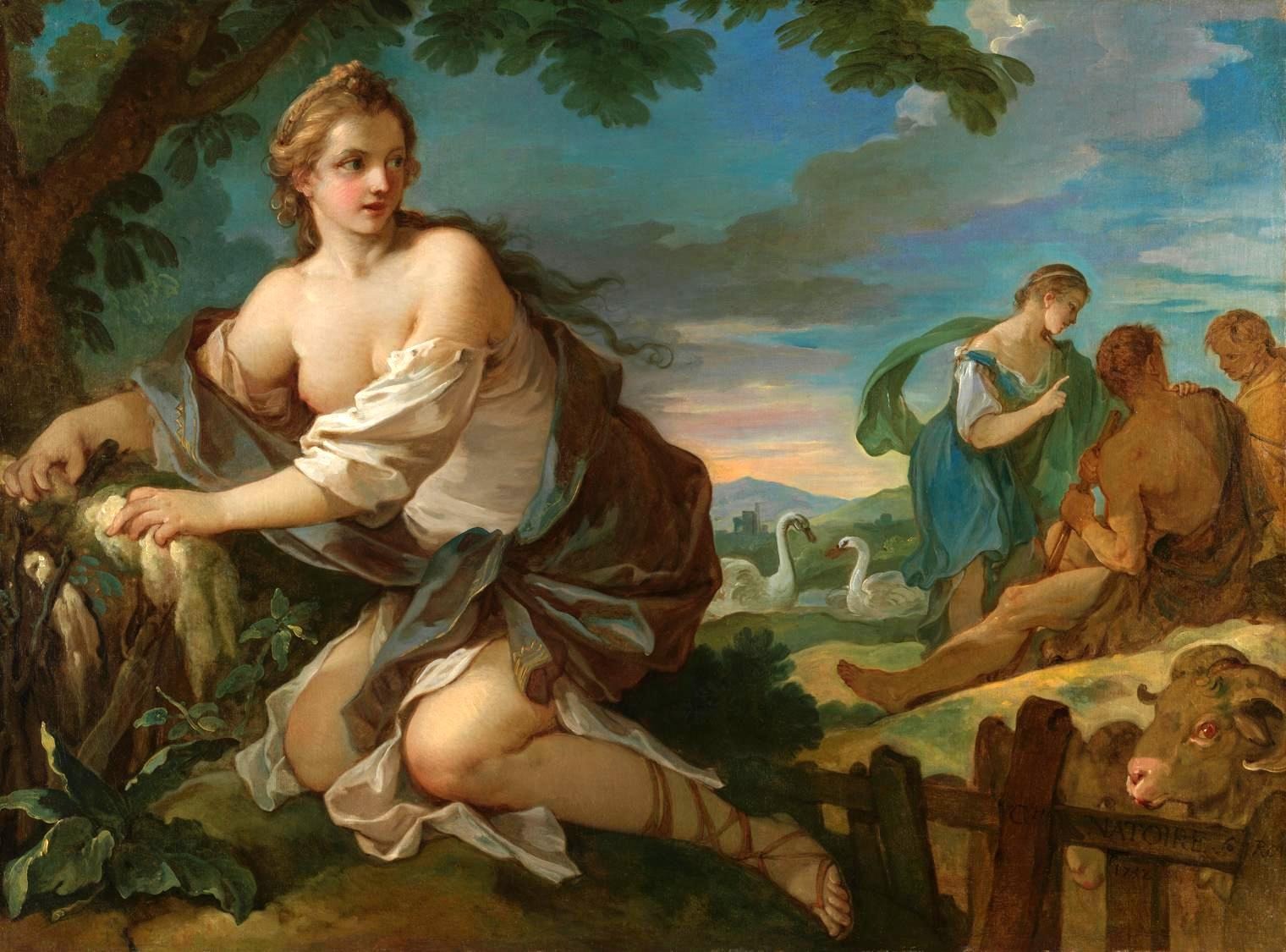
Task Two: Gathering the Golden Fleece
When Psyche brings the golden fleece to Aphrodite, she assigns her the next killer task. Aphrodite orders Psyche to fill a crystal flask with water from the turbulent River Styx, the water that separates the world of the living from the world of the dead. Touching this water is lethal. This River represents collecting and examining pieces of our deepest traumas from the unconscious.
Zeus’ powerful eagle swoops in to help her - as therapists do daily for people.
All women can examine their unconscious material with a guide and flask by flask. Our task is to can confront our shadows and integrate their internal aspects that are sources of shame and negative patterns.
Imagine Aphrodite’s surprise when she sees Pysche has accomplished this impossibility!
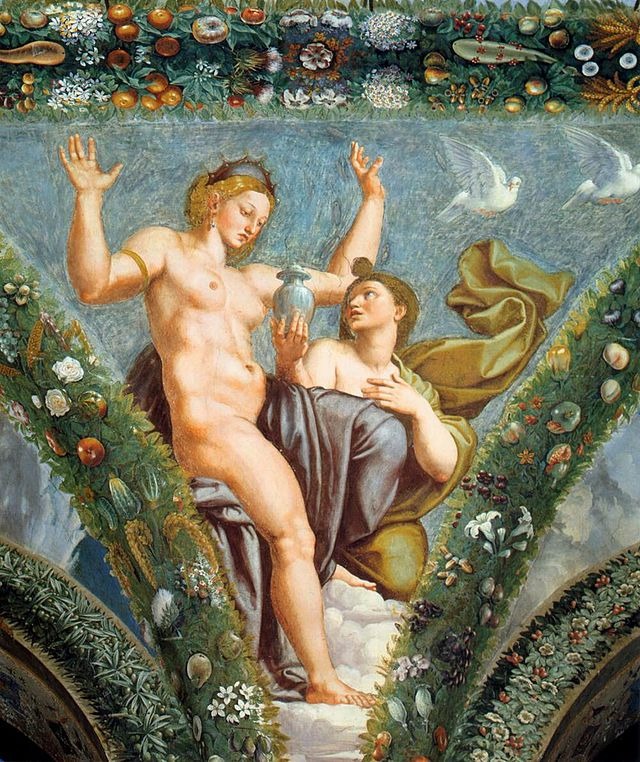
Task Three: Capturing Water from the River Styx
So, she assigns her a clearly impossible final task. Aphrodite orders Psyche to journey to the underworld and retrieve a magical beauty ointment from Persephone, the underworld goddess.
This task is truly lethal - we all know it is impossible to go to hell and back. In psychology, however, when a “hero” chooses to go into the depths of their unconscious and battle the archetypal shadow, they are rewarded with a beyond-death experience of immortality.
Boiled down, this task is learning to say no in all the critical situations, no matter how difficult. Let’s break it down.
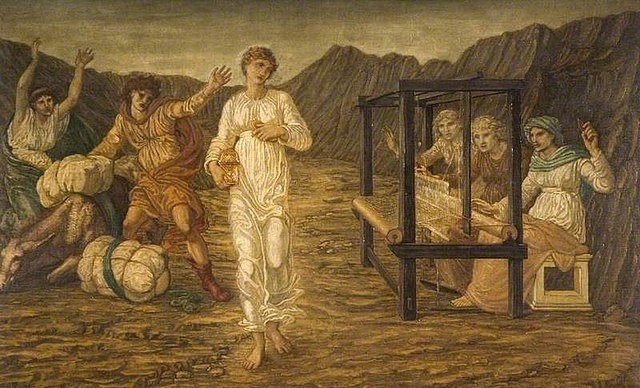
Task Four: Journey to the Underworld – Learning to Say No
First, Psyche encounters a lame man who asks her to pick up fallen sticks from his wagon. She must ignore him. This character is lame because he is unwilling to grow and evolve or become able to love truly and deeply.
There are many kinds of “lame men.” They are all lazy and afraid to put in the work. Unlike Women, who are constantly attacked, society allows these men to live comfortably in their ineptitude, so they have little motivation to grow.
Next, Psyche must cross the lifeless river Styx, where the souls of the dead swim. A ferryman will take her across for a fee. On the verge of death, an old man approaches her and begs for her to let him on the boat. She must not take pity on him, even if he is decaying and pathetic.
This man represents our original wound, the unresolved trauma that has never been laid to rest. Psyche’s original wound was being abandoned by her family.
After stepping over the threshold into the unconscious, you will catch the first glimpse of your original wound, around which your entire life has been constructed. We must not offer this “Dead Man” passage. Let it go.
When Psyche finally crosses the river, old women are e weaving at a loom. They ask for your help with their work, but this is a distraction. They’re there to ambush her and steal from her.
The spinster weavers are representative of dangerous distractions. But no matter how full of magic and mystery they might be, paying them attention takes you off your life path. Spinsters can take the form of family members, friends, or co-workers. Some people fall into the clutches of cons, cults, and pyramid schemes.
If Psyche sat with the spinsters, she would have found companionship. However, these women do not have good intentions. They want to interfere in her life for their own entertainment. Who’s to say they aren’t as jealous as Aphrodite?
By trapping Psyche and forcing her to spend her life beside them, weaving the same tapestry, they pull her down to their level. (In this case, literally hell.)
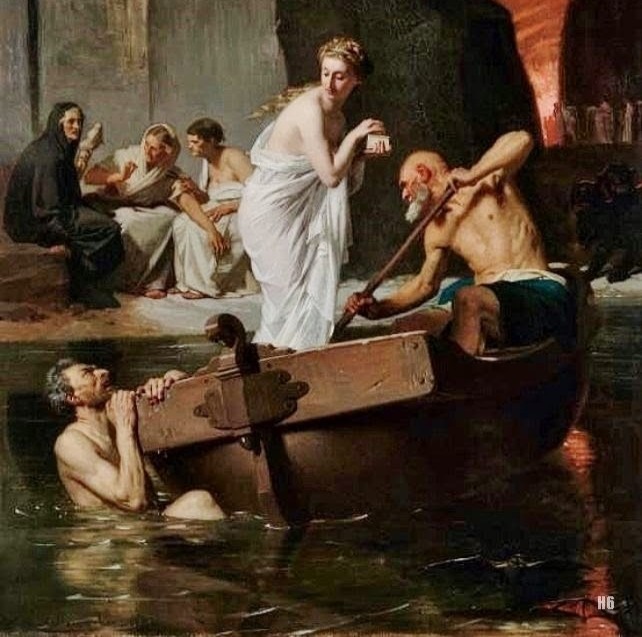
The primary mission of Psyche’s journey into the underworld is learning to reject negative and dangerous forces. These forces can take the shape of romantic partners, friends, obsessions with the past, threatening scenarios, and other appealing vices. We must learn to say “no” to the following things in our own lives.
So, Psyche moves on to Persephone’s palace, guarded by a huge hound with three heads. This monster keeps constant guard. You must disarm him by offering him a cake.
Each of the three heads represents our past, present, and future. The dog guarding the entrance to Persephone’s Chamber is meant to intimidate Psyche. Chained up, he cannot harm her, so he tries to intimidate her and has to be appeased.
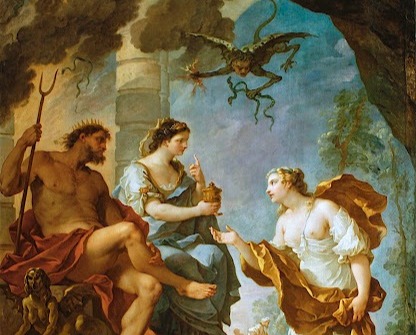
We are all vulnerable to regrets. When you project your past into the future, calculating every possible outcome, you terrorize yourself with worse-case scenarios that will likely never happen. Anxiety and paralysis are guaranteed.
But Psyche refuses to be afraid and marches into Persephone’s palace.
The goddess is charming and tries to get Psyche to sit beside her and enjoy dinner together. She’s lonely. Too lonely. If you dine with her, you will be sentenced never to leave her company and stay her friend forever.
But imagine for a moment you are Psyche. After journeying into the depths of Hell, you enter an enormous dark chamber. You feel your consciousness shifting in the presence of an actual goddess, sitting in pure elegance and power. She is ancient and eternal; she was here long before you were born and will be here long after you pass. She’s irresistible.
The goddess courteously welcomes you and pats a red velvet cushion beside her, beckoning you to come to sit, and offers you a rich feast and conversation. After your long, arduous journey, this would be heavenly.
But Psyche stays on task and asks only for a small amount of Persephone’s divine beauty ointment for Aphrodite. She simply sits on the floor and eats only plain, coarse bread. She is not seduced by the very things that almost destroyed her at Eros’ palace, wealth’s appeal to acquire, accumulate, and possess.
After what seems like an eternity, Persephone breaks her stare and says, “Fine then, if that is all you want…” and she produces a small box. Before Psyche knows it, she is out the door, not even looking back over her shoulder. She can’t even remember if she wished Persephone farewell.
Now, Psyche has been warned that she must not even open the box in the underworld, because if she did, she would remain forever in the place of the unliving. She returns from the underworld with the beauty ointment.
But back in the world of the living, Psyche wonders:
What could be inside this box? How stupid am I to carry beauty ointment fit for deities and not take a single drop of it for myself? Honestly with this ointment, Eros will have to take me back!
Psyche opens the box, determined to use a tiny dab of it to attract her husband back to her.
But inside, there was no beauty ointment or anything other than the sleep of the underworld. As soon as she removed the lid, it attacked her and coiled all her limbs in a thick cloud. It forced her into a deep, powerful death-like sleep.
She lay there, motionless, like a beautiful corpse.
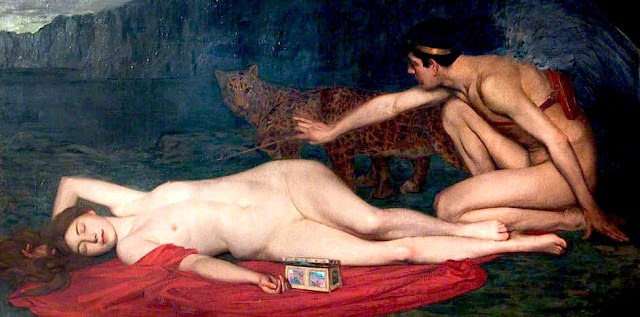
Now I bet you want to know: what was in the box?
The gift of Persephone was not the superficial beauty ointment that Aphrodite/Ego sought, however. Inside was Deep Sleep. Psyche fell instantly into a coma. Aphrodite could not reach her anymore; no one could.
The Sleep, however, was not a curse. This sleep is the final element in the Soul’s journey to love. It gives Psyche the necessary, nurturing darkness to disconnect from an ego-driven life.
In her slumber, Psyche connects with her soul and inner self-worth.
Self Love is one of the most important skills you can learn on your underworld journey. It alleviates suffering and is imperative to find true love in one’s life.
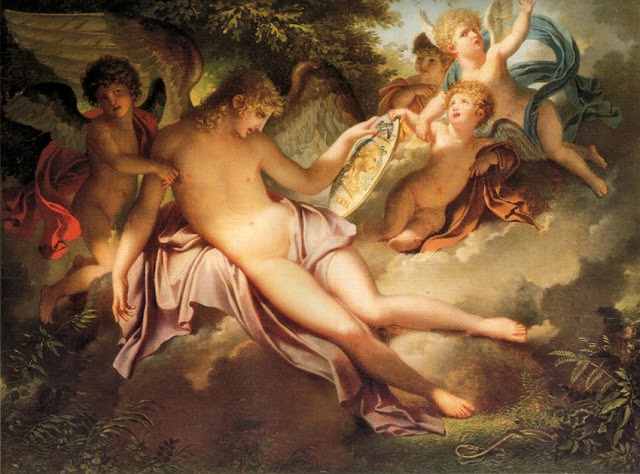
Eros was now irresistibly drawn to Psyche. He now realizes that his suffering is rooted in his being deprived of true love. He also realizes that the only way to get her back is some serious self-improvement and devotion. He flies to her as a completely new being.
Eros awakens Psyche and accepts her as his equal – they can now have a real relationship, Psyche would accept nothing less. He helps her deliver the ointment and complete the final task.
In order to walk beside her husband on Mount Olympus, Psyche must gain the esteem and approval of the society of gods and goddesses. Although she has embraced her inner goddess, to ascend to Olympus, these deities must also formally recognize it.
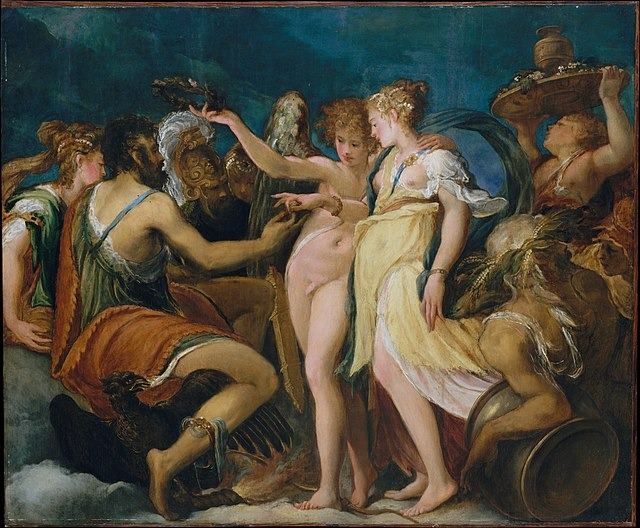
After our inner journeys, we must reconnect with the greater society, win esteem and respect. The skills of sorting the seeds, gathering the fleece, examining water flasks, and going to hell in the back make this possible.
When Aphrodite complains that Psyche is a mortal and should not be married to her divine son, Zeus turns Psyche into a literal goddess. This is the peak social status for Psyche and demonstrates how when you truly value yourself; the world will respect you too.
Psyche and Eros join forces, ready to begin their lives together. We are now able to see that all suffering is, in some form or another, an attempt to deny or reject the love that is ever-present. Love has always been and always will be. Aphrodite will just have to sit back, watch, and hopefully learn. She can’t interfere anymore.
Post a comment